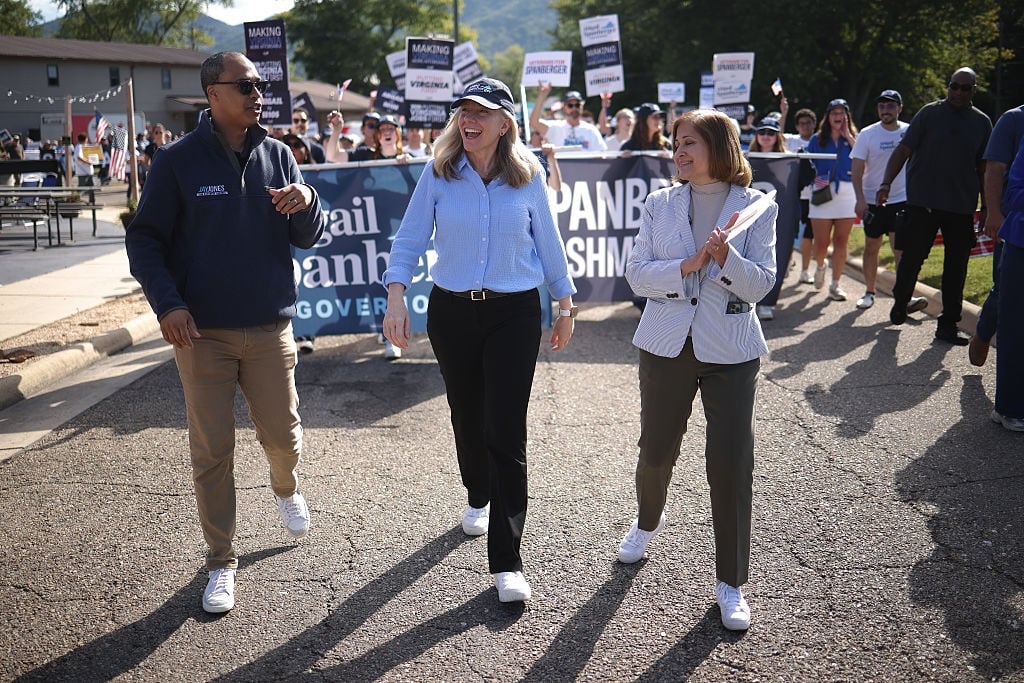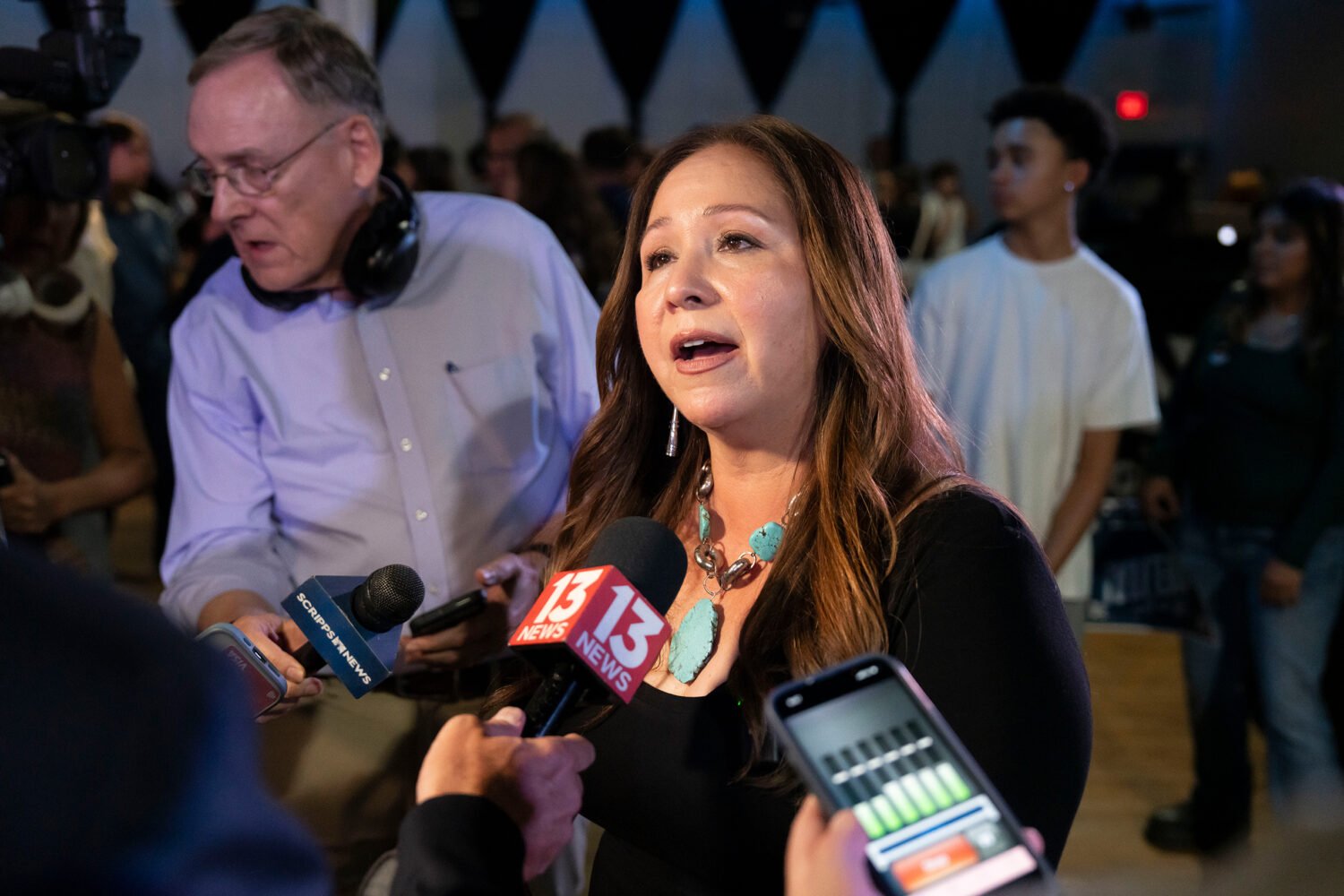Senator Bernie Sanders ended his presidential campaign this week. The reaction to this news has fallen across fairly predictable lines: relief and football-spiking by Never Trumpers, feigned magnanimousness from his Democratic detractors—and something close to seething disappointment by his supporters.
Of this latter group, one truth seems as certain as gravity: Sanders lost because the Democratic establishment closed ranks, coalescing around Joe Biden at the precise moment to solidify an insurmountable delegate lead. That happened when Pete Buttigieg and Amy Klobuchar dropped out of the race ahead of Super Tuesday, endorsing Biden alongside Beto O’Rourke.
This was the rear-guard action, Sanders’ supporters have reasoned, that prevented the Vermont Senator from administering the lethal judo chop to Biden’s anemic candidacy. As top Sanders pollster Ben Tulchin explained to the New York Times, Sanders was on the verge of victory “until the most unprecedented event in the history of presidential primaries occurred.”
Putting aside that candidates who drop out when they have no path to victory is hardly unprecedented, was this claim true? Did several candidates dropping out provide the reason why Sanders found himself in an insurmountable delegate gap?
The idea that the “establishment” boxed-out Sanders has been roundly debated on the merits for weeks. Establishment Democrats have argued that the DNC is too weak to “box out” anyone; that attributing losses to party scheming overlooks the role of actual voters; that Sanders didn’t pivot hard enough after winning Nevada into a message of unifying the party; and that the party establishment had absorbed much of Sanders’ ideas already, dimming the allure of Sanders’ campaign.
Maybe these critics have it wrong, or maybe they’re right—at this stage, it doesn’t matter all that much. In the coming weeks, a thousand post-mortems will bloom, and the Democratic party will get to ratify its own history of why Sanders lost.
But lost in this binary litigation will be an entirely separate point, one that shouldn’t be forgotten: the establishment-centric narrative the Sanders camp advanced contains its own rebuttal. It’s not about being mistaken on the merits. It’s an argument enjoined by its own contradiction of terms.
From the beginning, the notion of Sanders being besieged by a conspiratorial establishment was always suspect. After the fiasco of the 2016 primary, the DNC went to historic lengths to accommodate Sanders, rewriting much of the rules for how delegates would be counted and apportioned at the 2020 convention. They also rewrote the rules for the Iowa Caucuses, allowing the party to publish the popular vote results for the first time.
It was precisely those changes that allowed Sanders to declare “victory” in Iowa, narrowly winning the popular vote despite losing the delegate count that typically determines victory. But the new transparency that Sanders had demanded now posed a different problem: In 2020, he received far fewer votes than his last performance in the Caucuses against Hillary Clinton in 2016—earning approximately twenty-six thousand fewer votes than before.
That wouldn’t be a problem for a typical candidate. But Sanders’ candidacy hinged on the argument that to beat Donald Trump, his campaign would turn out a wave of first-time voters, an idea that became known as expanding the electorate. “Expanding the electorate” wasn’t merely a nice bonus or an adjunct to the Sanders campaign argument. It was the campaign argument, a mathematical necessity if Sanders planned to win on November 3.
So while Sanders was claiming that he could attract new voters, the campaign continued to receive fewer votes than it did in 2016. This dilemma repeated itself in New Hampshire, where Sanders received a whopping 75,000 fewer votes. It showed up again in Nevada and South Carolina, where he edged out his previous raw votes in 2016, but saw his percentage share of both states’ electorates fall, even amid a surge in turnout. In South Carolina, for example, statewide turnout increase by 169,000 voters, but Sanders received just 10,000 new votes on top of his 2016 count.
The pattern maybe have been incipient, but it was clear: Given the chance to vote for Sanders a second time, tens of thousands of Democratic voters opted to vote for somebody else.
How did the Sanders camp address this argument? They drenched it with scorn, using a simple and effective rebuttal: Obviously Sanders was receiving fewer votes in 2020—because there were more candidates running in 2020. In the last go-round, Sanders had to split the electoral pie with Clinton alone. Now there were eleven candidates to contend with. It was just math.
The crowded field, in other words, was obscuring Sanders’ momentum and electability. The campaign circulated polls that showed Sanders dominating Buttigieg, and that more Biden supporters would switch to Bernie over any other candidate—if only the other candidates would hurry up and drop out already. Far from Sanders “benefiting from his ‘moderate’ opponents splitting the vote,” journalist Medhi Hassan argued, “in Nevada, Sanders alone won more votes than Buttigieg, Klobuchar, and Biden combined.” For good measure, Hassan added: “In head-to-head matchups, Sanders beats each and every one of his Democratic rivals.”
Translation: more candidates need to drop out. Consolidating the field would demonstrate how dominant Sanders really was. If Sanders could go mano-a-mano with a single avatar of the establishment, just like he did with Clinton, then he could compete in the arena of a neutral DNC and the rewritten rules of the national convention—and this time, he would win.
Then came Super Tuesday, where the Sanders campaign lost to Joe Biden’s by a wide margin—and abruptly threw their previous logic out the window. No longer was the departure of rival candidates a necessity to reveal Sanders’ true electoral power and base-expanding prowess: it was the ultimate act of sabotage by the establishment. “If you’re surprised about events tonight,” campaign messenger David Sirota wrote of rival candidates endorsing Biden, “you must have been under the mistaken impression that the establishment was just going to nicely relinquish its ownership of American politics.”
Never mind that just weeks earlier, the Sanders campaign had essentially argued the opposite. Now Sanders’ ascension as the sole progressive flag-bearer in the primary wasn’t the star-turn his campaign had long engineered, but the hidden hand of the superstructure revealing itself to all.
On paper, there was no reason to assume that Buttigieg and Klobuchar’s endorsement of Biden should have come as bad news for Sanders—so long as Sanders was able to come through, that is, on his promise to expand the electorate. In the short aftermath of those departures, the Sanders campaign excitedly launched a #PeteToBernie and #AmyToBernie campaign to invite in those supporters.
Instead, Super Tuesday became a macrocosm of the problem in Iowa and New Hampshire. Even with the field greatly minimized, Sanders received fewer votes in eight of the fourteen states than he did in 2016. That included Vermont, where Sanders vote total diminished by 35,000 votes.
Absent the ability to expand the electorate, Sanders would have had to re-slice it—which meant winning over “establishment” voters. Generally, when this obvious truth was pointed out, it was not received kindly:
https://twitter.com/davidsirota/status/1235044712358105088
It cannot be denied that Sanders rankled establishment Democrats—and that he even might have provoked them to drastic action, had Sanders managed to become the presumptive nominee.
But they didn’t, and he wasn’t—and in the end, Sanders’ primary relationship to the establishment was to blame them when he was winning and castigate them when he was losing. The former he did when his rivals did not exit the race quickly enough; the latter he did when they exited the race too quickly. Whatever the real role the Democratic party played in marginalizing Sanders, it will probably be forever obscured by this comic tragedy.
What will the history books say about Sanders? I will leave it to smarter people to adjudicate the meaning of the first openly socialist candidate in a generation. But what is clear enough is this: Sanders calibrated his campaign’s strategy to the experience of losing to Clinton in 2016. They successfully pushed to rewrite the party rules, and built a campaign for the same one-on-one contest.
But maybe the contributing reason for Sanders’ loss had nothing to do with his strategy, or the establishment’s strategy, but simply with us. The mood of the electorate in 2016 was revolution; in 2020, it is exhaustion.
As Sir Walter Raleigh didn’t quite say, man tends to chase history like he follows after a wild mare. But the person—or the candidate—who follows history too close from behind will soon find he’s suffered an unfortunate accident: Being kicked in the teeth.
















